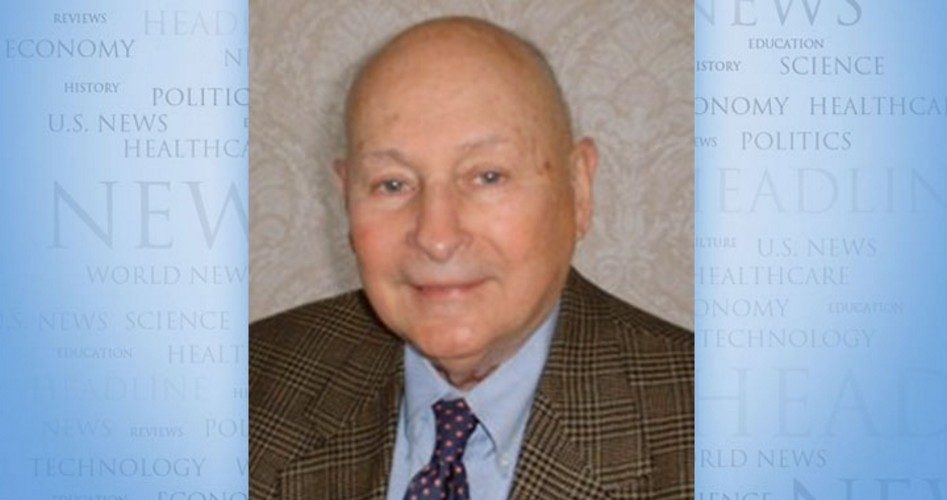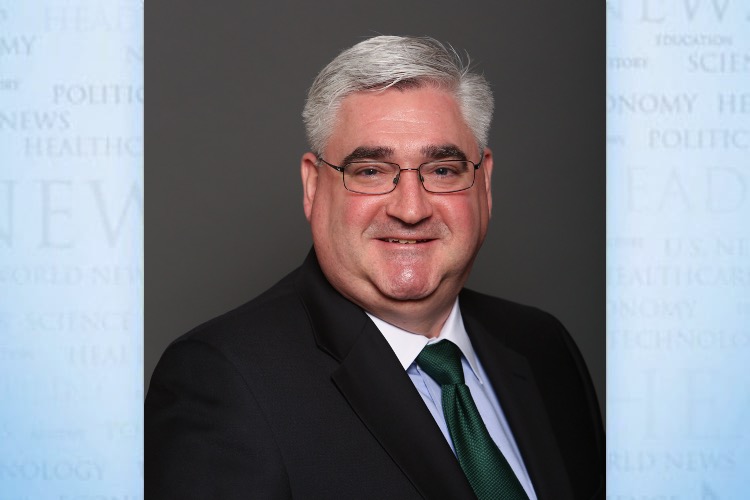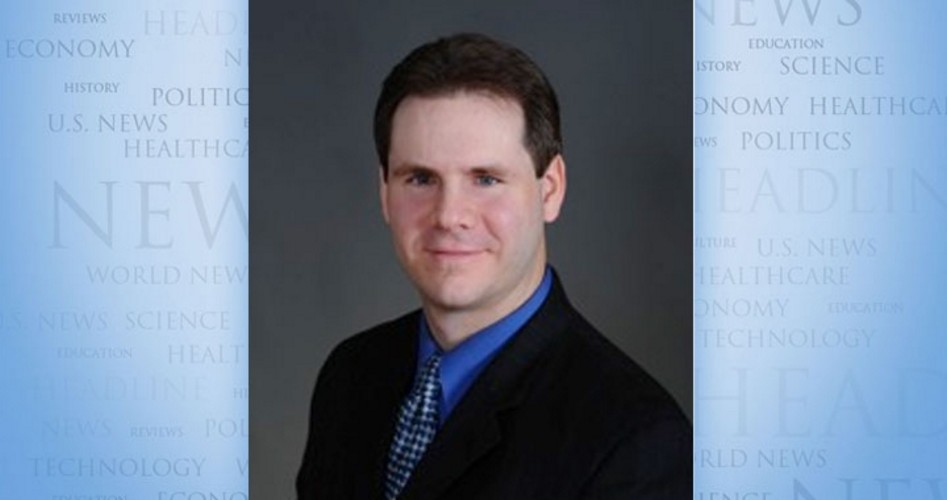
John Dewey and the Decline of American Literacy
I am often asked to name those educators responsible for the change in primary reading instruction which has led to the decline in literacy in America. People ask this because by the time they understand the history of the reading problem and of the dumbing-down process that has been going on in our public schools for the last 60 years, they recognize that all of this is not the result of a series of accidents but of conscious, deliberate decisions made by our educational leaders.
After 35 years of research, I can state without equivocation that the prime mover in all of this was none other than John Dewey, who is usually worshiped by liberals as the father of progressive education. We all know that he was the philosophical leader of the movement, but few know that he attended to such details as to how children should be taught to read. Yet, the change in the teaching of reading is probably Dewey’s greatest contribution to the transformation of American education from an academically oriented process to a social one.
The progressives were a new breed of educator who came on the scene around the turn of the last century. Most were members of the Protestant academic elite who no longer believed in the religion of their fathers even though many of them came from good Christian families. Some of them even had fathers who were ministers and missionaries.
These sons rejected the religion of the Bible and put their new faith in science, evolution, and psychology. Indeed, men like G. Stanley Hall, James McKeen Cattell, Charles Judd, James Earl Russell traveled to Germany to study the new psychology under Prof. Wilhelm Wundt at the University of Leipzig. It was these men who later imposed the new psychology on American education and transformed it permanently from its academic function to one dedicated to behavioral change.
John Dewey was introduced to the new psychology by G. Stanley Hall at Johns Hopkins University. In 1887, at the tender age of 28, Dewey felt that he knew enough about psychology to write a textbook on the subject, entitled fittingly Psychology. In 1894, Dewey was appointed head of the department of philosophy, psychology and education at the University of Chicago, which had been established two years earlier by a gift from John D. Rockefeller. In 1896, Dewey created his famous experimental Laboratory School where he could test the effects of the new progressive curriculum on real children.
Dewey’s philosophy had evolved from Hegelian idealism to socialist materialism, and the purpose of the experimental school was to show how education could be changed to produce little socialists and collectivists instead of little capitalists and individualists. It was expected that these little socialists, when they became voting adults, would dutifully change the American economic system into a socialist one.
Dewey did not get his socialism from Karl Marx. He got it from an American by the name of Edward Bellamy, a Unitarian journalist, who wrote a book in 1884 entitled Looking Backward, a fantasy of a utopian socialist America in the year 2000. The book described a totally transformed America in which the egalitarian ideal had been achieved and was working with marvelous efficiency. It was this utopian vision of a socialist future that drove the progressives in their messianic crusade to use education as the means of changing America into a socialist society.
In creating his Laboratory School, Dewey had to devise a curriculum that would produce little socialists and collectivists. In order to do so he analyzed the traditional curriculum that sustained the capitalist, individualistic system and found what he believed was the sustaining linchpin — that is, the key element that held the entire system together: high literacy.
To Dewey, the greatest obstacle to socialism was the private mind that seeks knowledge in order to exercise it s own private judgment and intellectual authority. High literacy gave the individual the means to seek knowledge independently. It gave individuals the means to stand on their own two feet and think for themselves. his was detrimental to the “social spirit” needed to bring about a collectivist society. Dewey wrote in Democracy and Education, published in 1916 (p. 297):
[W]hen knowledge is regarded as originating and developing within an individual, the ties which bind the mental life of one to that of his fellows are ignored and denied.
When the social quality of individualized mental operations is denied, it becomes a problem to find connections which will unite an individual with his fellows. Moral individualism is set up by the conscious separation of different centers of life. It has its roots in the notion that the consciousness of each person is wholly private, a self-inclosed continent, intrinsically independent of the ideas, wishes, purposes of everybody else.
And he wrote in School and Society in 1899:
[T]he tragic weakness of the present school is that it endeavors to prepare future members of the social order in a medium in which the conditions of the social spirit are eminently wanting. . . .
The mere absorbing of facts and truths is so exclusively individual an affair that it tends very naturally to pass into selfishness. There is no obvious social motive for the acquirement of merely learning, there is no clear social gain in success thereat.
It seems incredible that a man of Dewey’s intelligence could believe that the sort of traditional education that produced our founding fathers and the wonderful inventors of the 19th century lacked “social spirit” when it was these very individuals who created the freest, happiest, and most prosperous nation in all of human history. No small accomplishment of the capitalist individualistic system.
Of course, Dewey was writing before the Russian revolution. But, in reality, it was the progressives’ rejection of God which made them yearn for a utopia of their own making. And if high literacy was standing in the way, it had to go. Dewey wrote in 1896, after the Laboratory School had been in operation for nine months:
It is one of the great mistakes of education to make reading and writing constitute the bulk of the school work the first two years. The true way is to teach them incidentally as the outgrowth of the social activities at this time. Thus language is not primarily the expression of thought, but the means of social communication. . . . If language is abstracted from social activity and made an end in itself, it will not give its whole value as a means of development. . . . It is not claimed that by the method suggested, the child will learn to read as much, nor perhaps as readily in a given period by the usual method. That he will make more rapid progress later when the true language interest develops . . . can be claimed with confidence.
Note that Dewey admitted that the reading program he was proposing would not be as effective as the traditional method. But blinded by his vision of a utopian socialism, Dewey was capable of miseducating the child to suit his social agenda. It is doubtful that he was incapable of seeing what was truly happening in the mind of a child and why the teaching of reading and writing was quite appropriate for children between ages four and seven. All children, except the very seriously impaired, develop their innate language faculty very rapidly from ages two to six. In fact, by the time they are six, they have developed speaking vocabularies in the thousands of words, and can speak with clarity and grammatical correctness — without having had a single day of formal education.
In other words, children are dynamos of language learning and can easily be taught to read between ages four and seven, provided they are taught in the proper alphabetic-phonics way. Also, Dewey’s notion that the primary function of language is social communication is debatable. If we accept the Bible as our source of information, it becomes obvious that the primary purpose of language — which was God’s gift to Adam — was to permit Adam to converse with God and know his Creator. The second purpose of language was to permit Adam to know objective reality and develop his practical use of language by naming the animals. God made Adam a scientist and lexicographer even before He created Eve.
The third purpose of language was to permit Adam to know Eve, the social function of language. The fourth purpose of language was to permit Adam to know himself through introspection and inner dialogue. For Dewey and his colleagues, only the social function of language was its most important use, and therefore children would be instructed in reading and language in a manner that emphasized its social function. Today, whole language carries out the Dewey dictum most efficiently.
In May 1898, Dewey published his seminal essay, “The Primary-Education Fetich,” which was to guide the progressives in their long-range crusade to remake American education as an instrument to bring about socialism. He wrote:
There is … a false educational god whose idolators are legion, and whose cult influences the entire educational system. This is language study — the study not of foreign language, but of English; not in higher, but in primary education. It is almost an unquestioned assumption, of educational theory and practice both, that the first three years of a child’s school-life shall be mainly taken up with learning to read and write his own language. If we add to this the learning of a certain amount of numerical combinations, we have the pivot about which primary education swings….
… It does not follow, however, that because this course was once wise it is so any longer. On the contrary, the fact that this mode of education was adapted to past conditions, is in itself a reason which it should no longer hold supreme sway…. My proposition is, that conditions — social, industrial, and intellectual — have undergone such a radical change, that the time has come for a thoroughgoing examination of the emphasis put upon linguistic work in elementary instruction….
… The plea for the predominance of learning to read in early school-life because of the great importance attaching to literature seems to me a perversion…. No one can clearly set before himself the vivacity and persistency of the child’s motor instincts at this period, and then call to mind the continued grind of reading and writing, without feeling that the justification of our present curriculum is psychologically impossible. It is simply superstition: it is the remnant of an outgrown period of history.
But then he added a very important bit of advice to his fellow progressives, which left no doubt that this was a conspiracy to deceive the parents of America. He wrote:
Change must come gradually. To force it unduly would compromise its final success by favoring a violent reaction.
If what they were advocating was so beneficial, why would parents react violently against it? In other words, Dewey and his colleagues were willing to use as much deception as possible to advance the cause of socialism in education. And that deception is still going on today. That is why I now consider the American public school system to have become a criminal enterprise.
(To be continued.)




